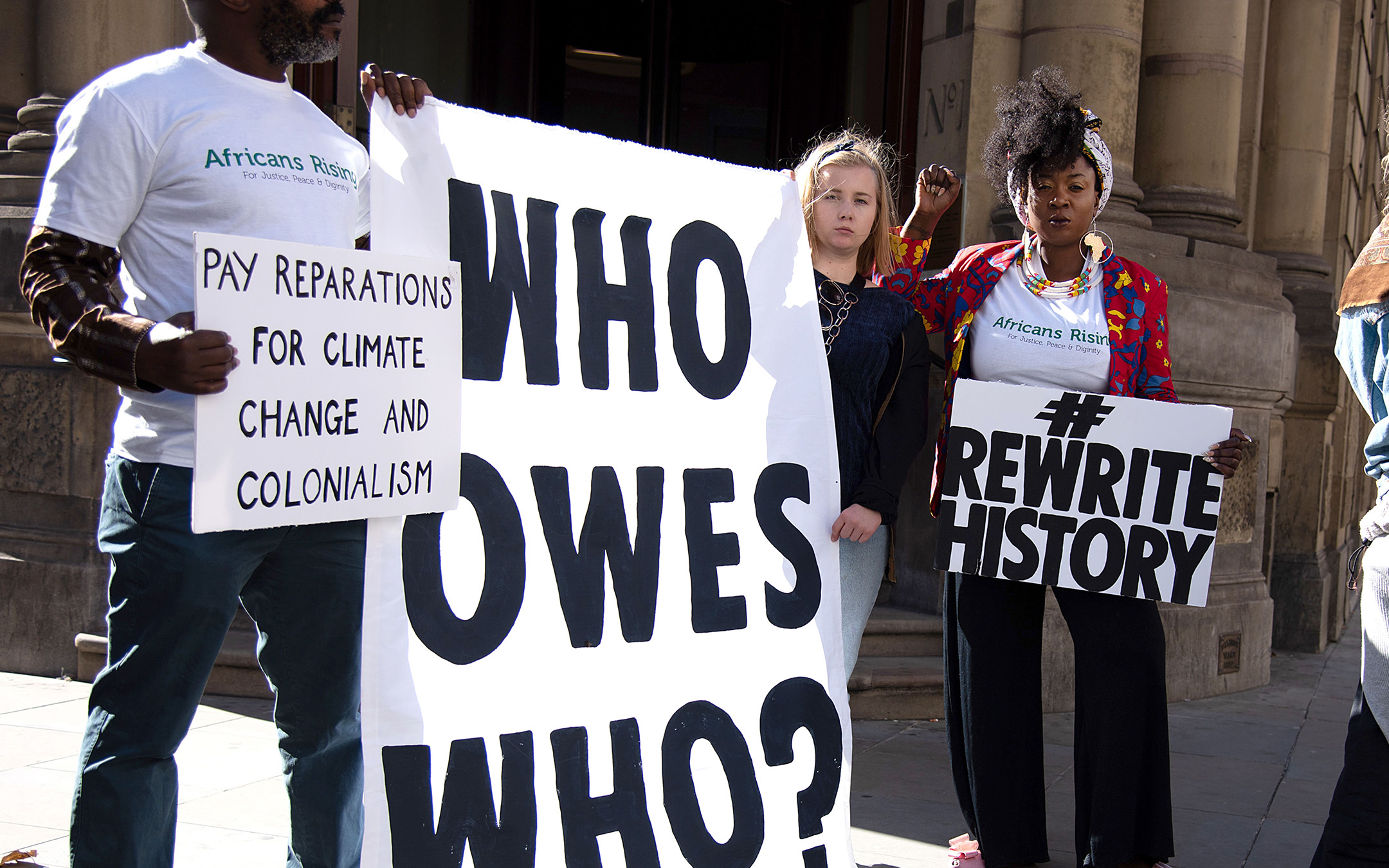
Detroiters' perceptions of the racial wealth gap, the legacy of slavery and other forms of racial inequity are strongly connected to their support for reparations and policies that address racial inequity.
Overall, 63% of Detroit residents support some form of reparations, and 70% say addressing racial inequality should be a high policy priority for elected officials, according to a new analysis of survey findings from the University of Michigan's Detroit Metro Area Communities Study and the Center for Racial Justice, with support from Poverty Solutions.
Detroit voters passed a ballot measure in 2021 to create a reparations task force to recommend housing and economic development programs for Black residents, and in February, the Detroit City Council appointed 13 people to the task force. Detroit is one of the cities where U-M's Center for Social Solutions is learning from community-based reparations efforts as part of the national Crafting Democratic Futures project.
"There is a strong link between awareness of racial inequality and support for reparative policies," said Erykah Benson, U-M doctoral student in sociology and research fellow at the Center for Racial Justice, who analyzed the survey results. "We're in a moment of national debate about how to think about, teach and resolve historical and contemporary injustices. How we collectively remember and understand our history shapes how we think about appropriate solutions for generational and ongoing injustices."
In 2019, the median white household in the United States had about eight times the wealth of the median Black household—$184,000 compared to $23,000, respectively (wealth refers to the amount a household owns, minus what they owe). The racial gap in household income also is substantial: The median Black household had an annual income of about $46,000 in 2020 compared to $75,000 for white households.
Among the 73% of Detroiters who believe the average Black person is worse off than the average white person in terms of income and wealth, 71% support reparations and 75% say policies that address racial inequality should be a high priority. Among the 14% of Detroiters who believe the average Black person is equally well off as the average white person, 38% support reparations.
Detroiters who agree the legacy of slavery and discrimination continues to affect Black Americans today are more likely to support reparations (73%) compared to those who disagree with this statement (30%), according to the survey findings.
"Nearly 8 in 10 Detroiters believe America's history of slavery and discrimination continues to impact the experiences and opportunities of Black Americans today. Understanding how Detroiters think about historical and current discrimination has important implications for the national discussion about reparations," said Jasmine Simington, a joint doctoral candidate in public policy and sociology at U-M and a research fellow at the Center for Racial Justice, who contributed to the survey analysis.
The survey showed opposition to reparations is not necessarily the same as opposition to addressing racial inequality. Thirteen percent of Detroiters oppose reparations, yet 41% of those who oppose reparations still say addressing racial inequality should be a high policy priority for elected officials.
The survey was fielded between June 16 and Aug. 26, 2022, and captures the views of a representative sample of 2,339 Detroit residents. Results were weighted to reflect the population of the city of Detroit.
Issue brief: Collective Remembrance and Detroiters' Views Toward Racial Inequality
Related: Candidate support for reparations would mobilize Detroit voters
This story was written by Lauren Slagter, Poverty Solutions, and Jared Wadley, Michigan News.
